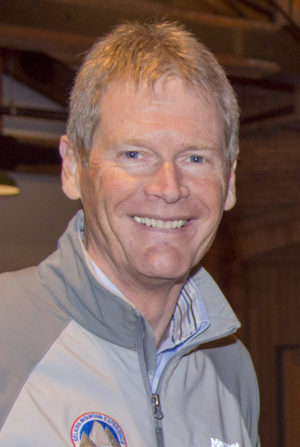
Nick Arkle
Arkle said that Downie has adapted to many changes since it was purchased in 1990, including pivoting to different markets over the years, such as the Middle East, Europe and Japan, and the U.S. The change has affected the species of trees they milled. Arkle said the current challenge to adapt to is changes to B.C. old growth policy and also changes brought by the B.C. government’s work to implement the United Nations Declaration on the Rights of Indigenous Peoples in the province. “This is where the impact is on Downie Timber. It’s what does the future look like, what kind of volumes are going to be available to us? What’s going to be the cost of accessing those volumes?” Arkle asked, saying there is a need for predictability, which they don’t have now.
Arkle said the planning process for harvesting takes about two years, making it challenging to adapt to sudden policy changes. …Arkle said Downie is working on bringing together an Indigenous and community-led effort. “It really is about getting First Nations with us, looking at the local data, using Indigenous knowledge, getting the experts, sitting down together and figuring out how we can identify what really are meaningful deferrals, and not just a blanket deferral on anything that has a colour on a map.” …Arkle acknowledge changes in “social license” around old growth harvesting, saying the company wants to work with parties involved to come up with a plan. “We have to work with our communities, we have to work with our Indigenous leadership and communities to come up with that balanced plan for the future, because it’s too important not to get right.”